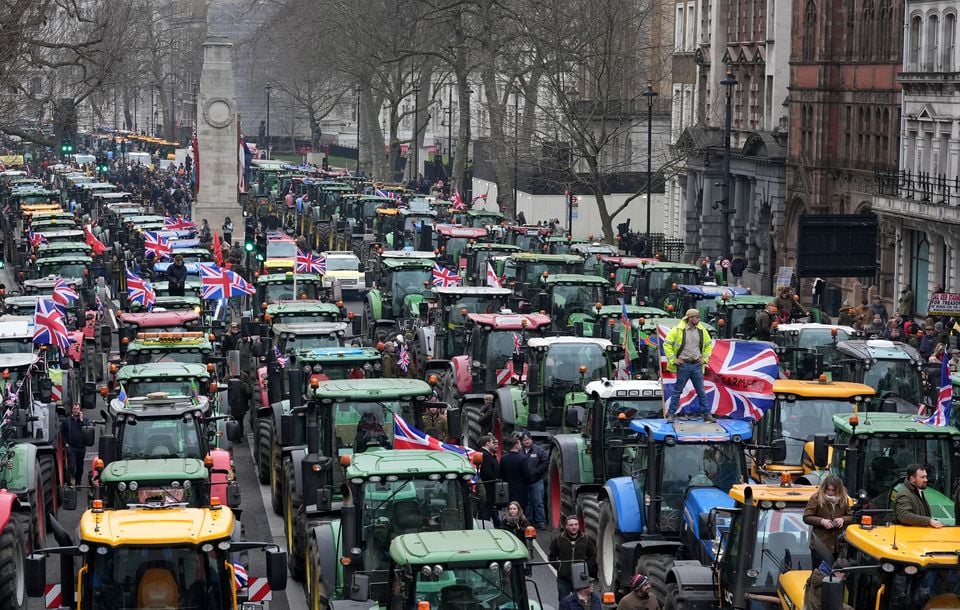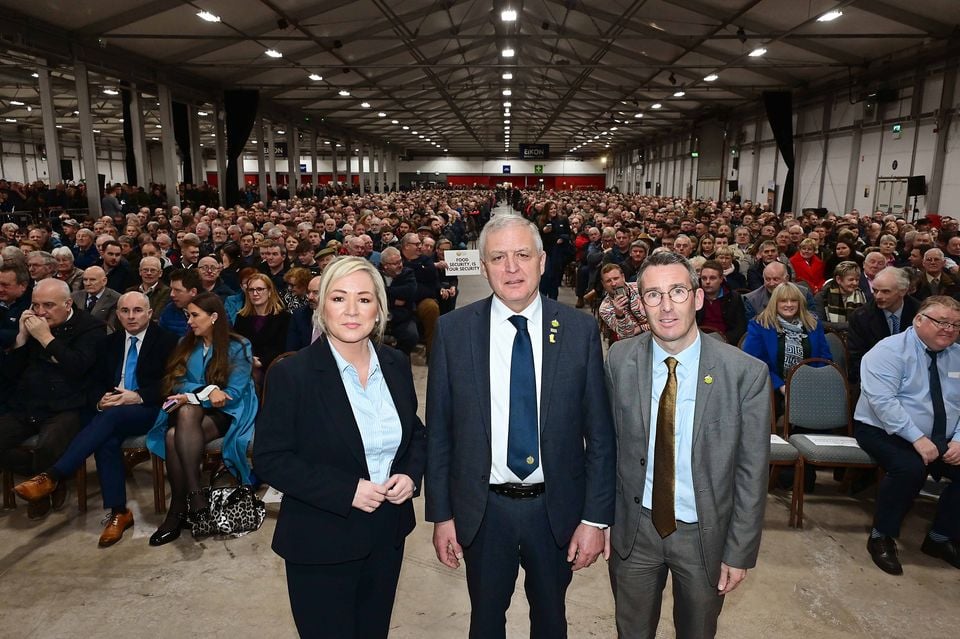A senior figure from the local farming industry has said there is no prospect of the government reconsidering its inheritance tax plans after a meeting in Westminster.
Chancellor Rachel Reeves announced the capping of agricultural property relief in her Autumn Budget.
It means inherited farms in the UK will be taxed 20% on assets including land, livestock, buildings and machinery with a combined value of £1m-plus.
The Ulster Farmers’ Unions (UFU) joined its Scottish, English and Welsh counterparts to meet with Whitehall officials this week.
UFU president William Irvine said they hoped to challenge the Inheritance Tax Bill, which he claimed will be “detrimental” to food security here.
However, what they heard has dashed any hopes of a U-turn.
He said: “There was no glimmer of hope at all — they did not give an inch.
“They say that there will be future farm support going forward, but there’s a fundamental issue here and they are not understanding it.
“Or if they do understand it, they are not willing to accept it.”
Department of Agriculture, Environment and Rural Affairs research indicates a third of local farms could be impacted.
Farmers descend on Westminster to protest against changes to inheritance tax rules
Mr Irvine warned the Bill threatens the viability of farms and will prove a “massive disincentive” for future generations.
He explained that, unlike the generational transfer of normal businesses, there was no cash realised when family farms were inherited, and selling a part of a farm reduced its viability.
He added: “Deaths do not come along in nice, chronological order.
“It is possible for some families, through illness or accident, to be hit twice with this in a short space of time.
“People will lose farm businesses that have been in families for generations through no fault of their own.
“It’s best summed up with that old phrase ‘asset rich and cash poor’. But when you’re faced with a tax bill, you require cash.”
Despite the knockback, he insisted the UFU would “not be letting this slide”, and will continue to ramp up pressure through rallies here and in Britain.
He also pointed to strong support for his members and the general farming community from Stormont.
He added: “The First and Deputy First Minister are very much on our page here.
“Political opinion across Northern Ireland is behind us in this, the local politicians are already on our page.
“So, we feel that there’s nobody really that we need to lobby heavily within Northern Ireland, and we’re going to have to consider how best we make our case going forward.”
First Minister Michelle O’Neill, William Irvine and Agriculture Minister Andrew Muir at an event last November supporting local farmers (Arthur Allison/Pacemaker Press)
DUP agriculture spokesperson Michelle McIlveen hit out at Westminster over the issue.
“The Labour government’s attitude in its meeting with farming unions from across the UK on the issue of inheritance tax was nothing short of disgraceful.
“The proposed changes will have a devastating impact on our model of family farming, which has sustained rural communities for generations.
“Nowhere will this be felt more acutely than in Northern Ireland, where land values mean that local farming families will be disproportionately hit.
“It is a matter of deep regret that Labour has chosen to target farming in this way, showing no regard for the crucial role our farmers play in ensuring food security in an increasingly volatile world.
“The DUP will continue to work with farmers to make the strongest possible case to protect our local industry — this campaign is far from over.”
A government spokesman said: “We regularly meet representatives of the farming industry to listen to their views, but strongly believe this is a fair and balanced approach which helps fix the public services we all rely on.
“Our reforms to agricultural and business property relief will mean three-quarters of estates will continue to pay no inheritance tax at all, while the remaining quarter will pay half the inheritance tax that most people pay, and payments can be spread over 10 years, interest-free.
“We are also investing £5 billion into farming over the next two years, the largest amount for sustainable food production in our country’s history, and are going further with reforms to boost profits for farmers by backing British produce and reforming planning rules on farms to support food production.”

